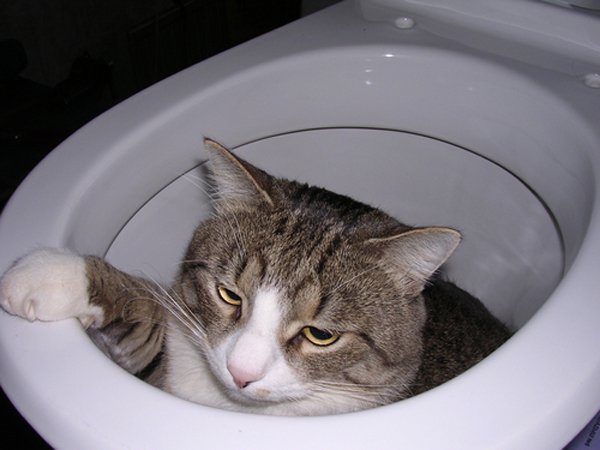The Risks of Disposing Cat Poop in Your Toilet - Precautionary Measures
The Risks of Disposing Cat Poop in Your Toilet - Precautionary Measures
Blog Article
Are you hunting for advice How to Dispose of Cat Poop and Litter Without Plastic Bags?

Introduction
As feline owners, it's essential to bear in mind exactly how we throw away our feline pals' waste. While it might seem practical to flush pet cat poop down the toilet, this method can have destructive effects for both the setting and human wellness.
Environmental Impact
Flushing feline poop presents unsafe microorganisms and bloodsuckers into the water system, posing a considerable risk to aquatic environments. These impurities can negatively impact marine life and compromise water high quality.
Wellness Risks
Along with ecological problems, purging pet cat waste can also pose health risks to humans. Cat feces may contain Toxoplasma gondii, a bloodsucker that can create toxoplasmosis-- a possibly serious health problem, especially for pregnant females and people with weakened immune systems.
Alternatives to Flushing
The good news is, there are more secure and much more responsible means to take care of feline poop. Take into consideration the following options:
1. Scoop and Dispose in Trash
The most usual approach of dealing with pet cat poop is to scoop it right into an eco-friendly bag and toss it in the trash. Be sure to make use of a specialized litter inside story and deal with the waste immediately.
2. Usage Biodegradable Litter
Select naturally degradable feline clutter made from materials such as corn or wheat. These clutters are eco-friendly and can be securely dealt with in the garbage.
3. Bury in the Yard
If you have a lawn, consider hiding cat waste in a designated area far from veggie gardens and water sources. Make sure to dig deep sufficient to prevent contamination of groundwater.
4. Mount a Pet Waste Disposal System
Buy a pet waste disposal system particularly designed for feline waste. These systems use enzymes to break down the waste, decreasing smell and ecological influence.
Conclusion
Liable family pet possession extends past offering food and sanctuary-- it also includes correct waste administration. By avoiding purging cat poop down the bathroom and going with alternative disposal methods, we can reduce our ecological impact and protect human health and wellness.
Why You Should Never Flush Cat Poop Down the Toilet
A rose by any other name might smell as sweet, but not all poop is created equal. Toilets, and our sewage systems, are designed for human excrement, not animal waste. It might seem like it couldn’t hurt to toss cat feces into the loo, but it’s not a good idea to flush cat poop in the toilet.
First and foremost, assuming your cat uses a litter box, any waste is going to have litter on it. And even the smallest amount of litter can wreak havoc on plumbing.
Over time, small amounts build up, filling up your septic system. Most litter sold today is clumping; it is made from a type of clay that hardens when it gets wet. Ever tried to scrape old clumps from the bottom of a litter box? You know just how cement-hard it can get!
Now imagine just a small clump of that stuck in your pipes. A simple de-clogger like Drano isn’t going to cut it. And that means it’s going to cost you big time to fix it.
Parasitic Contamination
Believe it or not, your healthy kitty may be harboring a nasty parasite. Only cats excrete Toxoplasma in their feces. Yet it rarely causes serious health issues in the cats that are infected. Most people will be fine too if infected. Only pregnant women and people with compromised immune systems are at risk. (If you’ve ever heard how women who are expecting are excused from litter cleaning duty, Toxoplasma is why.)
But other animals may have a problem if infected with the parasite. And human water treatment systems aren’t designed to handle it. As a result, the systems don’t remove the parasite before discharging wastewater into local waterways. Fish, shellfish, and other marine life — otters in particular — are susceptible to toxoplasma. If exposed, most will end up with brain damage and many will die.
Depending on the species of fish, they may end up on someone’s fish hook and, ultimately on someone’s dinner plate. If that someone has a chronic illness, they’re at risk.
Skip the Toilet Training
We know there are folks out there who like to toilet train their cats. And we give them props, it takes a lot of work. But thanks to the toxoplasma, it’s not a good idea.
I discovered that review on How to Dispose of Cat Poop and Litter Without Plastic Bags while doing a search on the web. Are you aware of somebody who is in the market for Don’t flush cat feces down the toilet? Do not hesitate to promote it. Thanks a lot for going through it.
Call Us Now Report this page